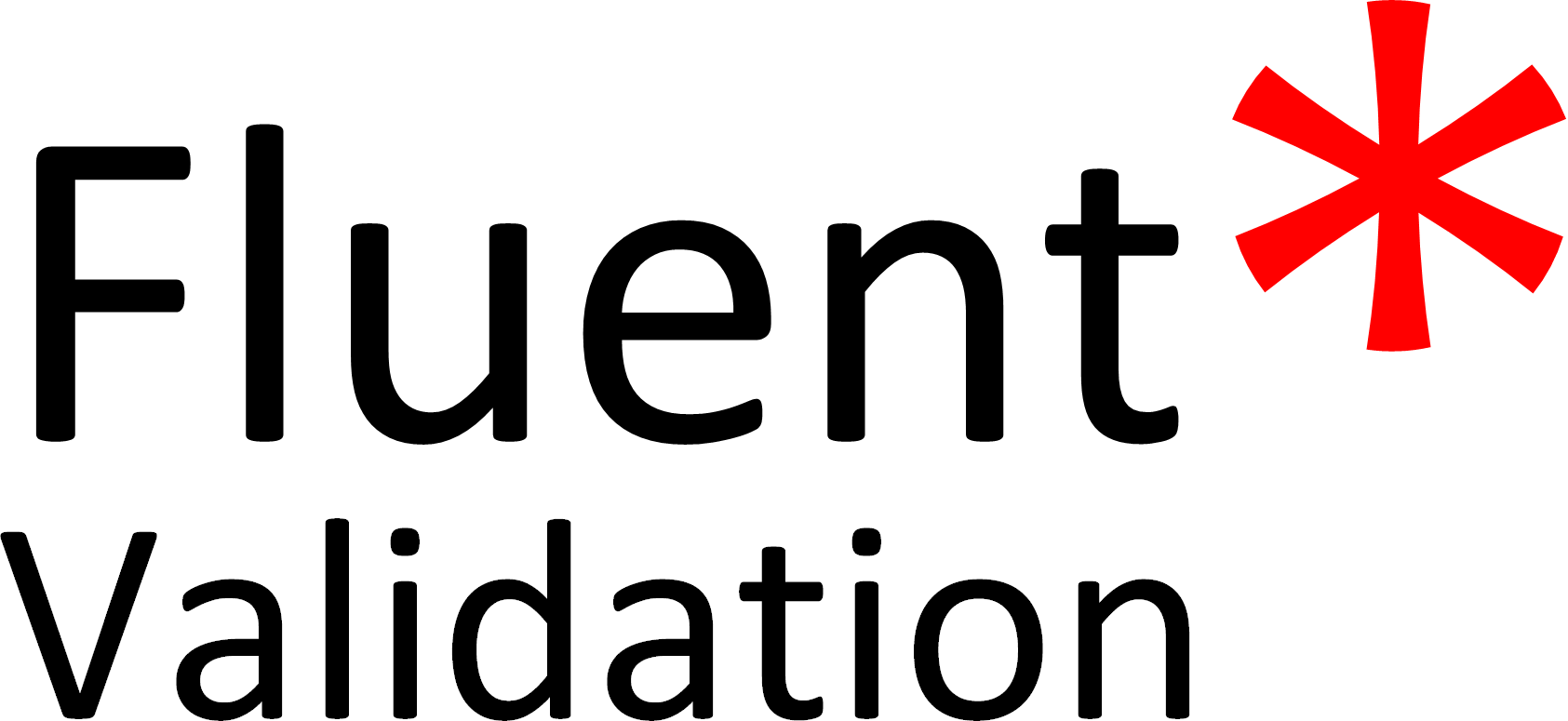A validation library for .NET that uses a fluent interface and lambda expressions for building strongly-typed validation rules.
If you use FluentValidation in a commercial project, please sponsor the project financially. FluentValidation is developed and supported by @JeremySkinner for free in his spare time and financial sponsorship helps keep the project going. You can sponsor the project via either GitHub sponsors or OpenCollective.
FluentValidation can be installed using the Nuget package manager or the dotnet CLI.
dotnet add package FluentValidation
Review our documentation for instructions on how to use the package.
using FluentValidation;
public class CustomerValidator: AbstractValidator<Customer> {
public CustomerValidator() {
RuleFor(x => x.Surname).NotEmpty();
RuleFor(x => x.Forename).NotEmpty().WithMessage("Please specify a first name");
RuleFor(x => x.Discount).NotEqual(0).When(x => x.HasDiscount);
RuleFor(x => x.Address).Length(20, 250);
RuleFor(x => x.Postcode).Must(BeAValidPostcode).WithMessage("Please specify a valid postcode");
}
private bool BeAValidPostcode(string postcode) {
// custom postcode validating logic goes here
}
}
var customer = new Customer();
var validator = new CustomerValidator();
// Execute the validator
ValidationResult results = validator.Validate(customer);
// Inspect any validation failures.
bool success = results.IsValid;
List<ValidationFailure> failures = results.Errors;FluentValidation has adopted the Code of Conduct defined by the Contributor Covenant to clarify expected behavior in our community. For more information see the .NET Foundation Code of Conduct.
FluentValidation is copyright © 2008-2022 .NET Foundation, Jeremy Skinner and other contributors and is licensed under the Apache2 license.
This project is sponsored by the following organisations whose support help keep this project going:
- Microsoft for their financial contribution
- JetBrains for providing licenses to their developer tools
This project is part of the .NET Foundation.



